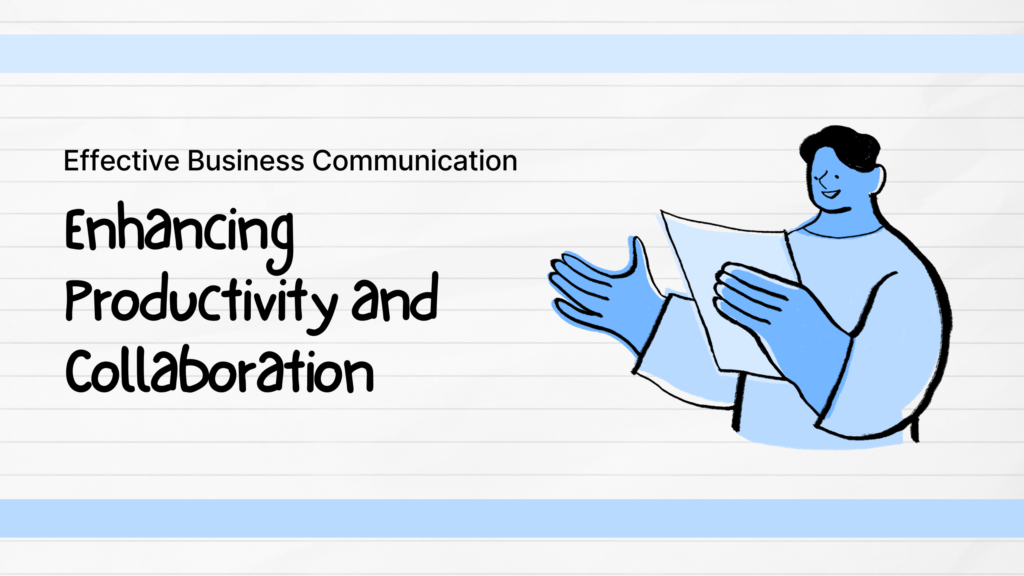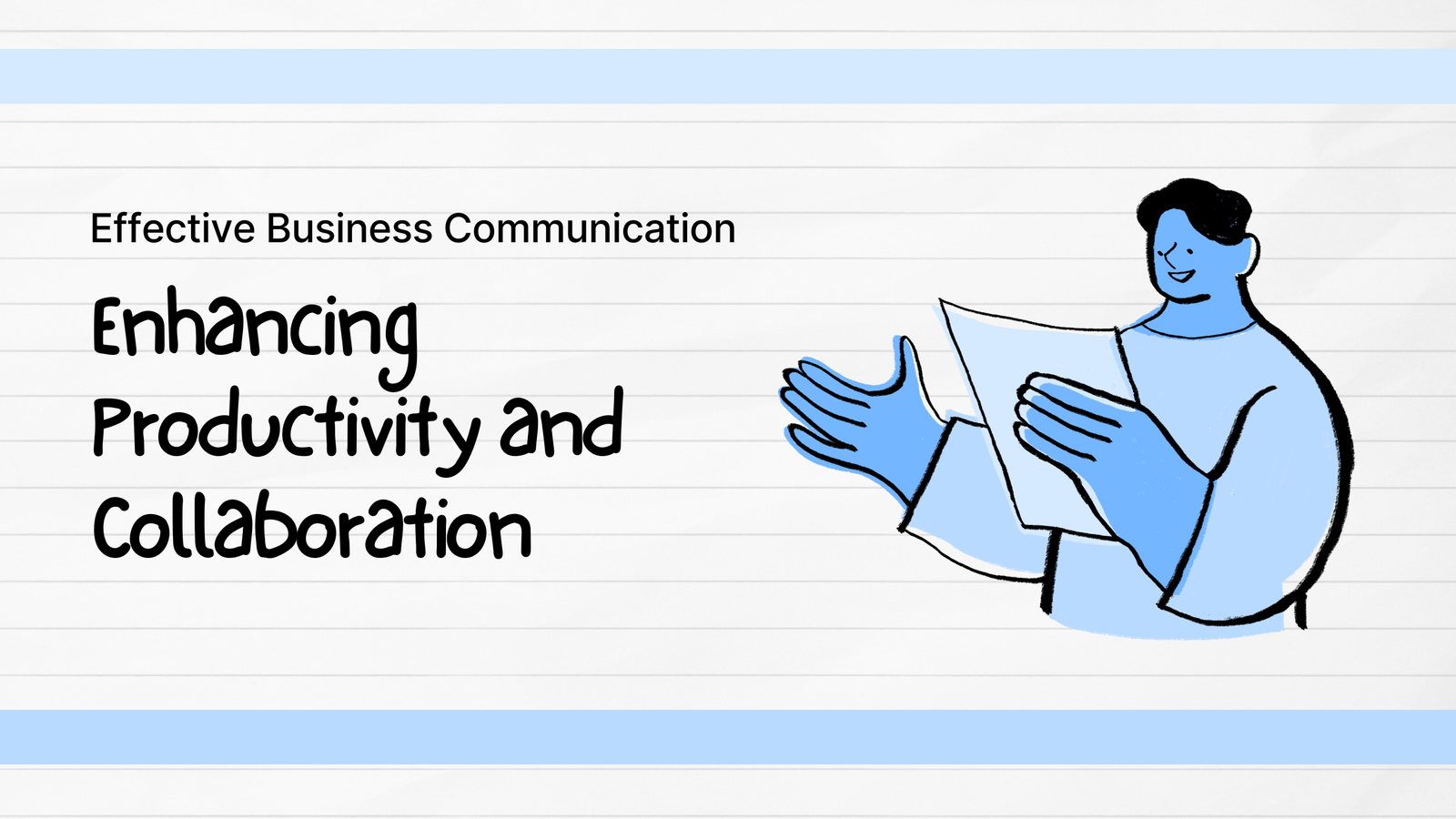In today’s fast-paced business environment, effective communication is more crucial than ever. It’s not just about exchanging information; it’s about fostering collaboration, enhancing productivity, and creating a positive work environment. Whether you’re leading a team, working in a department, or managing a project, mastering business communication can make a significant difference in achieving organizational goals. Here’s a comprehensive guide to understanding and improving effective business communication.

The Importance of Effective Business Communication
Effective communication in business is the cornerstone of successful operations. It impacts various facets of a company, including:
- Team Collaboration: Clear and open communication helps team members understand their roles, responsibilities, and expectations. It ensures that everyone is on the same page and can collaborate efficiently.
- Productivity: Miscommunication can lead to mistakes, delays, and inefficiencies. By communicating effectively, teams can streamline processes, reduce errors, and work more efficiently.
- Employee Morale: Transparent communication fosters a positive work environment. When employees feel informed and heard, they are more likely to be engaged and motivated.
- Customer Relationships: Effective communication extends beyond internal interactions. Clear communication with clients and customers helps in managing expectations, addressing concerns, and building trust.
Key Principles of Effective Business Communication
To enhance communication in your organization, consider these fundamental principles:
- Clarity and Conciseness: Communicate your message clearly and directly. Avoid jargon or overly complex language that might confuse your audience. Being concise helps in getting the point across without unnecessary details.
- Active Listening: Effective communication is a two-way street. Practice active listening by giving full attention to the speaker, acknowledging their message, and providing thoughtful responses. This helps in understanding different perspectives and fosters mutual respect.
- Appropriate Medium: Choose the right communication medium based on the message and the audience. For instance, complex or sensitive information might be better conveyed through face-to-face meetings or video calls rather than emails.
- Feedback Mechanism: Establish a system for giving and receiving feedback. Constructive feedback helps individuals and teams improve their performance and address any issues promptly.
- Non-Verbal Communication: Be mindful of body language, facial expressions, and tone of voice. Non-verbal cues can significantly impact how your message is received and interpreted.
- Empathy and Respect: Approach communication with empathy and respect. Understanding and considering the feelings and perspectives of others can lead to more effective and harmonious interactions.
Strategies for Improving Business Communication
- Training and Development: Invest in communication skills training for your team. Workshops and seminars can enhance both verbal and written communication skills, leading to more effective interactions.
- Use Technology Wisely: Leverage communication tools and platforms that facilitate collaboration. Tools like Slack, Microsoft Teams, and Asana can help in managing projects, sharing information, and staying connected.
- Encourage Open Dialogue: Foster a culture of open communication where employees feel comfortable sharing ideas, asking questions, and voicing concerns. Regular team meetings and feedback sessions can support this.
- Standardize Communication Processes: Develop clear communication protocols and guidelines for your organization. Standardizing processes helps in ensuring consistency and reducing misunderstandings.
- Regular Check-Ins: Schedule regular check-ins with team members to discuss progress, address any issues, and align on goals. This helps in maintaining clarity and keeping everyone informed.
- Effective Written Communication: Pay attention to the clarity and professionalism of written communications. Proofread emails, reports, and documents to ensure they are free of errors and convey the intended message effectively.
Overcoming Communication Challenges
Effective communication is not without its challenges. Here are some common issues and how to address them:
- Cultural Differences: In a global business environment, cultural differences can impact communication. Be mindful of cultural nuances and adapt your communication style accordingly.
- Language Barriers: Language differences can lead to misunderstandings. Use simple language and confirm understanding when communicating with non-native speakers.
- Information Overload: Too much information can overwhelm employees. Prioritize and organize information to ensure that key messages are clear and actionable.
- Conflict Resolution: Conflicts can arise from miscommunication or differing viewpoints. Address conflicts promptly and professionally, focusing on finding solutions rather than placing blame.
Conclusion
Effective business communication is essential for enhancing productivity, fostering collaboration, and creating a positive work environment. By adhering to key principles, implementing effective strategies, and addressing communication challenges, organizations can improve their internal and external interactions. Remember, communication is a continuous process that requires attention and effort. Investing in effective communication practices can lead to more cohesive teams, better decision-making, and overall business success.
